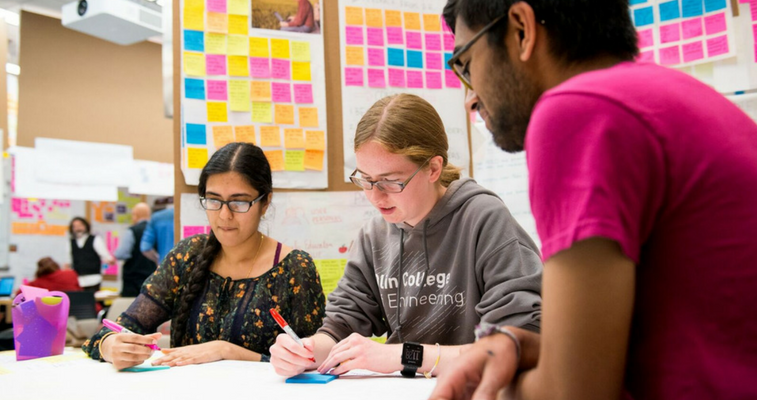Here is an obvious statement: Boston is a college city. Here is another one: Most of Boston’s tech talent is fostered at those colleges.
When someone talks about where the talent comes from, its the general collection of MIT, Harvard, and Northeastern. But while they are all impressive and deserve to be revered as they are, there are several other schools in the Greater Boston area that are equally deserving of recognition.
Located right in Needham and south of Babson College is the Olin College of Engineering. The school currently offers its students three (although technically four) degrees in engineering including mechanical, electrical, and computer, alongside a general engineering degree. At Olin, all students are engaged in a curriculum that is project-based, design-focused and hands-on.

A majority of the college’s graduates are employed by leading tech companies. A few you may have heard of include Google (which the college’s website claims are the largest employer of their graduates), Microsoft, athenahealth, Pivotal, and HubSpot. In fact, Google makes an effort to travel out to Needham and to conduct mock job interviews and resume reviews with students.
Other alumni of the college have gone on to start their own companies, including indico CTO and former CEO Slater Victoroff (Class of ‘14), Bigbelly Co-Founder and current Director of Product Jeff Satwicz (Class of ‘06), and RightHand Robotics Co-Founder Leif Jentoft (Class of ‘09).
The college also shares a trait with many other fantastic startups and entrepreneurs in the Boston tech scene -- Olin College sometimes (and unfortunately) flies under the radar.

“While we are new, in less than 20 years our graduates have landed at some of Silicon Valley’s biggest companies, and they have launched their own startups in cutting-edge fields,” said the college’s Corporate Relations Coordinator Suzanne Alcott. “We used to get people wondering if we were part of Babson. We don't get that anymore."
Alcott joined the college as part of their staff as the fall 2006 semester was just starting to kick into high gear. At this point in the college’s lifespan, Olin was only four years old.
Who is Frank Olin? - The Man, the Myth, the Legend Behind the College!
Franklin W. Olin (1860 - 1951) was a lifelong civil engineer who founded the manufacturing-focused Olin Corporation, which is a Fortune 1000 company today. While his many personal and professional accomplishments are impressive, it was in his later years that he founded the Franklin W. Olin Foundation, using a substantial amount of his personal wealth as a means to focus on his philanthropic efforts. The foundation gave out grants to dozens of colleges across the country, in order to construct and equip STEM-focused buildings on college and university campuses.
After his passing, the Olin Foundation continued its mission, but in the late 90s, the foundation’s board of directors understood that they would have to plan for the future. It would be board member Lawrence “Larry” Milas who proposed an idea that allowed the foundation to continue its cause of helping higher education institutions but also try to advance engineering education.
“Mr. Milas, who was one of the heads of the board of directors at the time, helped them come up with the idea of starting their own college,” said Alcott. “The idea was to change engineering education.”
In 1997, Olin College received its educational charter from the Commonwealth of Massachusetts, and plans began to move forward.
As the construction and development of the campus chugged along (including the hiring of full-time faculty) in 2000-01, the college began a partner program with a select group of 30 students to help develop and finalize the course of study and iron out any other kinks that the school may experience when enrolling more students.
The following year, the students in the partner program, along with an additional 45 students, had the honor of being Olin’s introductory first-year class.
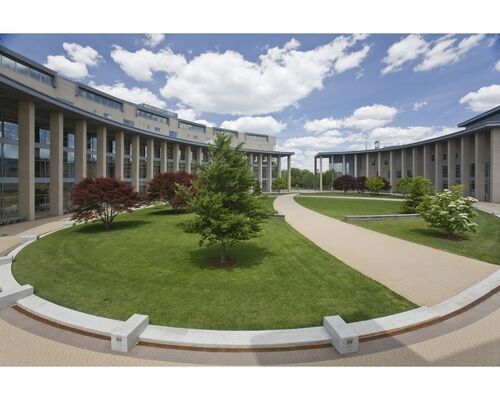
Classes and campus life at Olin College
On average, Olin’s student population consists of about 350 students, which perfectly fits the relatively small campus. There are three main buildings surrounding the Academic Oval, with an additional two to house the students.
Olin makes up for its relatively limited number of majors through the direct and authentic academic experiences it offers students. As stated above, many of the classes at Olin involve more hands-on work, as students gain real-world engineering experience and practical skills within their major. Students also have the option of creating a “self-designed” major where they can build their own syllabus, often taking classes at Babson and Wellesley to complete their degrees.
Combining Entrepreneurship and Engineering
Professor Lawrence Neeley, the Assistant Professor of Design & Entrepreneurship at the college, is no stranger teaching at engineering schools, as he was an adjunct professor at MIT. He has been guiding students on transforming their engineering ideas into real-world applications.
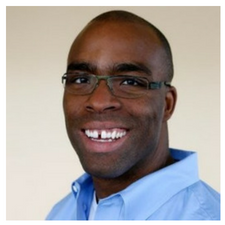
“Our Introduction to Entrepreneurship class is intended to allow engineers to not just create potential solutions, but also deliver,” Neeley said. “What I mean by delivering is asking students how they can create these enterprises that allow these ideas to land in the world.”
In his classes, he teaches students design framing of their projects, whether it’s hardware or how to sustain a business. It’s the hands-on and collaborative approach to class time that is one of Olin’s core differentiators. Neeley chalks it up to his courses being more open to including a more human element.
“People are on both sides of the coin, as our entrepreneurship classes offer students social and emotional development. We’re developing whole people, which is a big part of our mission at Olin,” said Neeley. “A lot of our classes overlap one another, which also creates a more interactive environment at the college.”
The synergy between different individuals is also apparent within the faculty, as Neeley helps organize the entrepreneurship curriculum with two other professors who have biology, anthropology, and humanities backgrounds.
The college gives students a significant amount of freedom as they begin to show interest and start creating their plans for focusing on a particular industry. Robotics, software, and bioengineering are some of the favored sectors students will work in. A wide interest in robotics is also reflected in one of the many student teams, the Robotic Sailing team, which has students developing all kinds of seafaring robots.
Finals Week Events - Olin EXPO and SCOPE
EXPO is Olin’s bi-annual event where students showcase the various projects they have worked on throughout the semester. In addition to being a chance to display educational projects, the gathering also enables the students to share creative side projects, such as a piece of music or artwork. The goal of EXPO is to not only to exhibit what they have been up to, but to also bring the school together as a community.
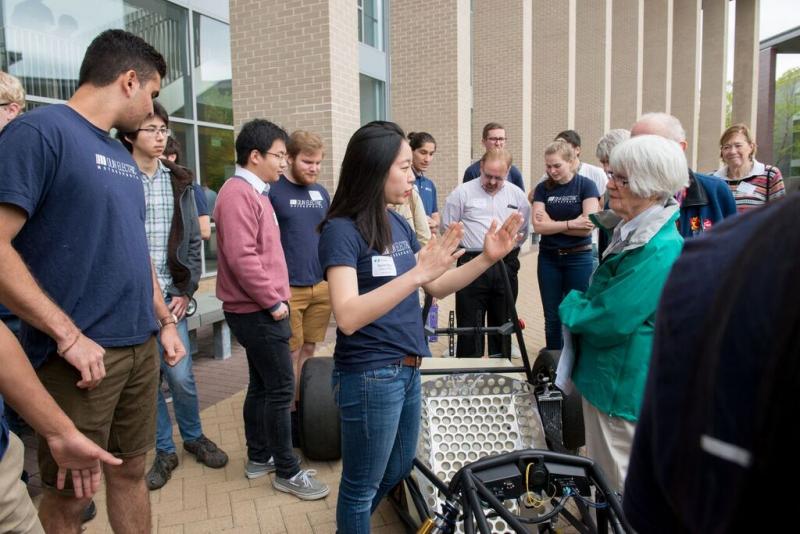
“In the first few years of its existence, we would invite faculty members from other engineering schools in the area to evaluate not only how we were doing, but how the students were doing,” Alcott said. “Now, it’s a celebratory occasion. It’s a great way for people who have never met us to come and see what our students are doing. It gives them the sense of how different we are regarding hands-on projects and team building experiences compared to other engineering institutions.”
On the other end of the spectrum is the Senior Capstone Program in Engineering (SCOPE), which is a more like the showcases that are commonly seen in the Boston tech space—but with a few slight differentiators. The largest one being is it is more involved with academics with pitching an idea or asking for money. Instead, students take the stage and detail what projects they have been working on all year for a corporate or nonprofit client.
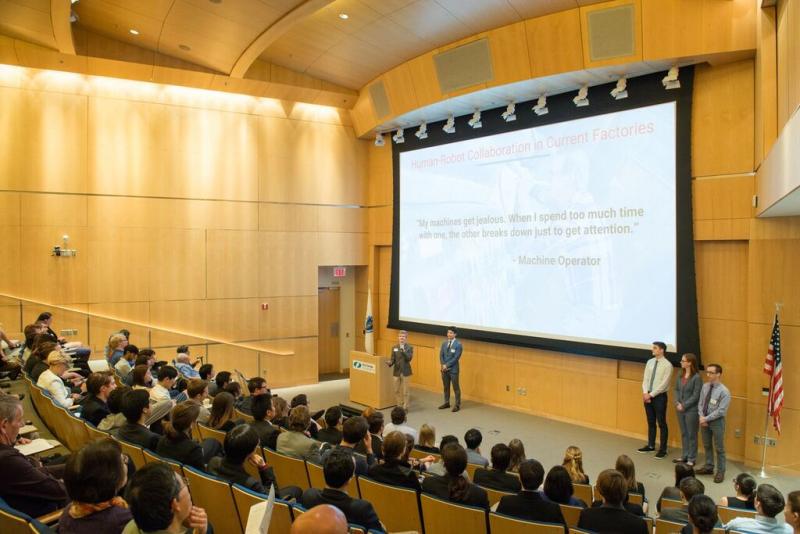
Olin College - What’s next?
To reiterate earlier statements: Boston is a college city, and a large amount of Boston’s tech talent is fostered at those colleges. But in addition to those obvious statements, here is a third: There is a seemingly perpetual competition for talent in the Boston tech scene, especially with companies trying to retain top talent. This may be a result of several factors, including a limited pipeline of students studying STEM subjects.
Maybe local companies should look a little beyond the typical MIT/Harvard/Tufts cluster and check out Olin, a little engineering school in Needham.
The college has been around for just a decade and a half, and while it remains on the outskirts of Boston, its reputation as a source of engineering talent is growing more and more. Olin ’s success with students is nothing to take lightly, as they have a 90% graduation rate.
“While we may not be on the radar as a lot of that may have to do with name recognition with the average college student, we are well-known within the engineering world,” Neeley told us. “If they know Olin, they are super excited to hear more about us.”
Colin Barry is an Editor & Staff Writer to VentureFizz. Follow him on Twitter @ColinKrash
Images courtesy of Olin College

